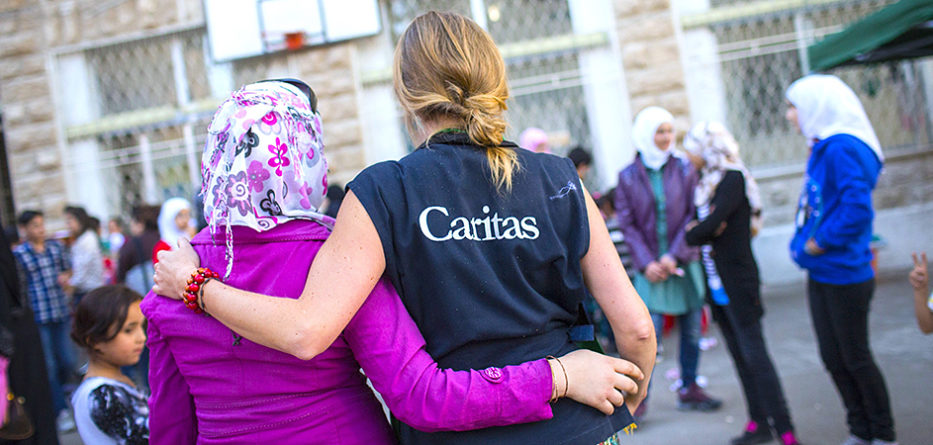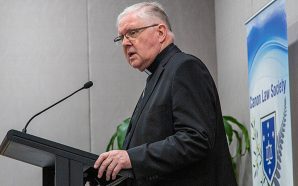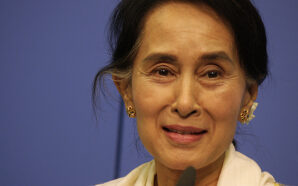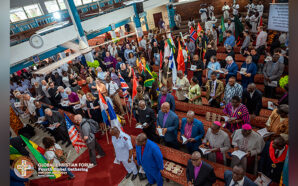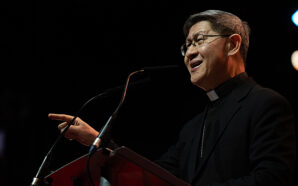Dorothy Day, the prophetic founder of the Catholic Worker movement, was a Catholic well ahead of her times.
The story is told that one day a well-dressed and well-off New York socialite went to one of the Worker houses and gave Dorothy a diamond ring. She thanked the visitor, slipped the ring in her pocket, and later that day gave it to an old woman who lived alone and came each day to their soup kitchen.
Somebody protested the diamond ring could be sold and pay the woman’s rent for a year. To which the reply was let her sell it and pay the rent or use the money for a holiday in the Bahamas, or just enjoy wearing it. Whatever choice the old woman made, it would be her choice and she would have her dignity.
Anyway, Dorothy asked, “Do you suppose that God created diamonds only for the rich?”
Such stories enflesh the sayings of Jesus, have the recklessness of the Beatitudes, and echo Pope Francis’s insistent call to each of us.
For we all know the example Pope Francis has been giving to the world. His message is simple: it’s all about encounter.
In the first sentence of the Pope’s apostolic exhortation, Evangelii Gaudium, he says, “The joy of the gospel fills the hearts and lives of all who encounter Jesus.”
Our faith is nothing without this personal encounter with God and with those who are suffering.
And how does one do such a thing? In prayer, yes. But more also by allowing ourselves to encounter the God in one another.
Human beings have this need to be acknowledged by another, yet we often ignore those around us. We can’t limit our encounters to disembodied ones in our phones and devices.
Can we Catholics make similar bold and intentional efforts to encounter those around us?
Our encounters with Jesus may begin in prayer, but they must spill into the encounters we have with our friends, neighbours, and even strangers.
Pope Francis is constantly inviting us, with both his words and actions, to encounter others in a spirit of dialogue. Just think of his recent visit to war-torn Iraq.
He always rejects confrontational discourse. His is a vision of church and society in which different people can live together, complement each other, and illuminate each other, although this doesn’t exclude arguments or distrust.
We can learn something from everyone; no one is useless, no one is expendable. Someone on the periphery sees things that I don’t see, because he or she has a perspective that I don’t have and observes reality from a different position.
Particularly challenging for me personally in Pope Francis’s ‘theology of encounter’, is his insistence that it is not healthy to flee from conflicts or to ignore them. Something I am rather strongly inclined to do – for probably rather mixed motivations!
Instead, Francis urges us to accept tensions and disagreements and suffer them through to the end, not hide them. But we must always do this with the ideal of resolving them, of harmonising the differences.
Each “should be able to express himself peacefully, without being insulted, condemned, attacked, or cast to one side.” That is to say, all in our Catholic communities, must be able to express a different opinion or offer a nuanced view, without having a waterfall of insults and suspicions rain down on them.
For there are many subtle ways we all ‘silence’ those who are different. When that happens, an encounter becomes impossible.
An authentic encounter presupposes recognising the other’s right to be herself/himself and to be different. Dorothy Day knew what she was doing when she encountered the Christ present in that old lady in the slums of New York.
May we Catholics also follow Dorothy Day and Pope Francis on this Gospel journey of encounter.
With thanks to Cindy Wooden & Joshua J. McElwee for their great book and its insights A Pope Francis Lexicon, Liturgical Press (2018), which was the genesis of this article.
Br Mark O’Connor FMS is the Vicar for Communications in the Diocese of Parramatta.




